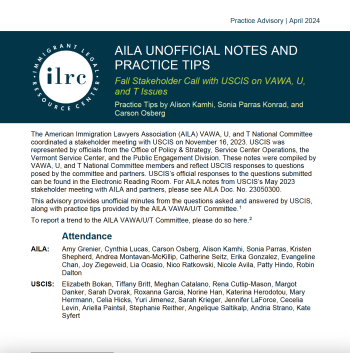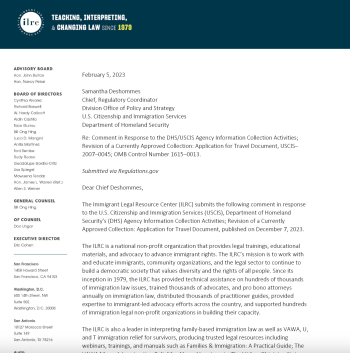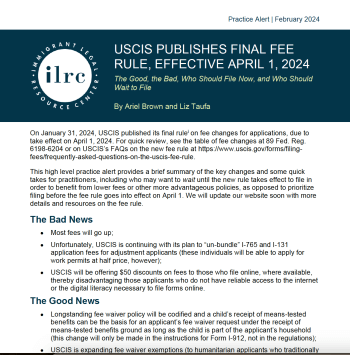Term Page
U Visa/T Visa/VAWA
The U.S. immigration system treats children and young people differently than adults. It is important to understand how your age may impact your options for seeking relief or protection against deportation. This Community Explainer highlights how age impacts eligibility for certain forms of immigration relief, how immigrant youth can help themselves and their family members, and how to learn more.
If you are undocumented and have been a victim of a crime, served as a witness for law enforcement, or have been subject to human trafficking, you may be eligible to apply for certain forms of immigration status. These are known as U, T, and S visas. In most cases, the application process for these visas will require help from a law enforcement agency. This Community Explainer details how a new California law, AB 1261, aims to better protect immigrants who are applying for these forms of relief and ensure that California law enforcement agencies help them when needed.
As of April 1, 2024, immigrant survivors of abuse, trafficking, and other crimes can now apply for certain immigration benefits for free. This Community Explainer details which survivor-based benefits are covered by the new fee exemptions, as well as other changes that may reduce financial barriers to accessing immigration benefits.
On January 31, 2024, U.S. Citizenship and Immigration Services (USCIS) released a final fee rule that will go into effect April 1, 2024. This Community Alert delves into the provisions of the new rule including increased fees, expanded fee exemptions, and changes to fee waiver policy. This downloadable guide also offers some key takeaways and resources to find support for your immigration case.
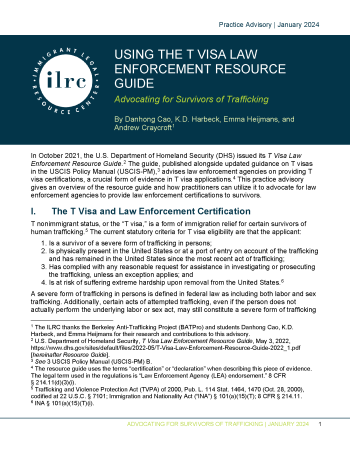
In October 2021, the U.S. Department of Homeland Security (DHS) issued its T Visa Law Enforcement Resource Guide. The guide, published alongside updated guidance on T visas in the USCIS Policy Manual (USCIS-PM), advises law enforcement agencies on providing T visa certifications, a crucial form of evidence in T visa applications. This practice advisory gives an overview of the resource guide and how practitioners can utilize it to advocate for law enforcement agencies to provide law enforcement certifications to survivors.
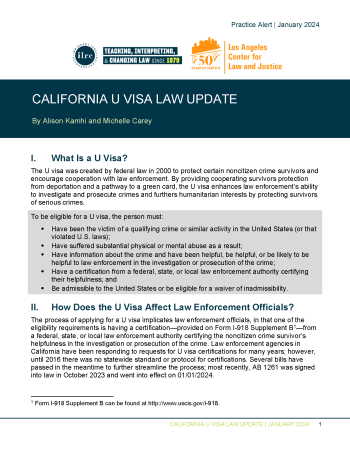
Law enforcement agencies in California have been responding to requests for U visa certifications for many years to allow immigrant survivors of crime and their family members to apply for U nonimmigrant status. However, until 2016 there was no statewide standard or protocol for certifications. Several bills have passed in the meantime to further streamline the process. Most recently, AB 1261 was signed into law in October 2023 and went into effect on 01/01/2024. The Immigrant Legal Resource Center and the Los Angeles Center for Law and Justice wrote this advisory to summarize California state laws on U visa certifications, including the newest provisions.
Criminal Convictions can have serious consequences on peoples’ lives – especially non-citizens who wish to stay in the United States. Many immigration benefits have criminal bars, meaning that certain convictions will prevent you from getting a lawful immigration status, like permanent residence (green card). This Community Explainer offers some options for those who have had certain convictions related to domestic violence or human trafficking, with insights about how to define these crimes, some example scenarios, and explanations about the benefits of a legal tool called a “vacatur.”
